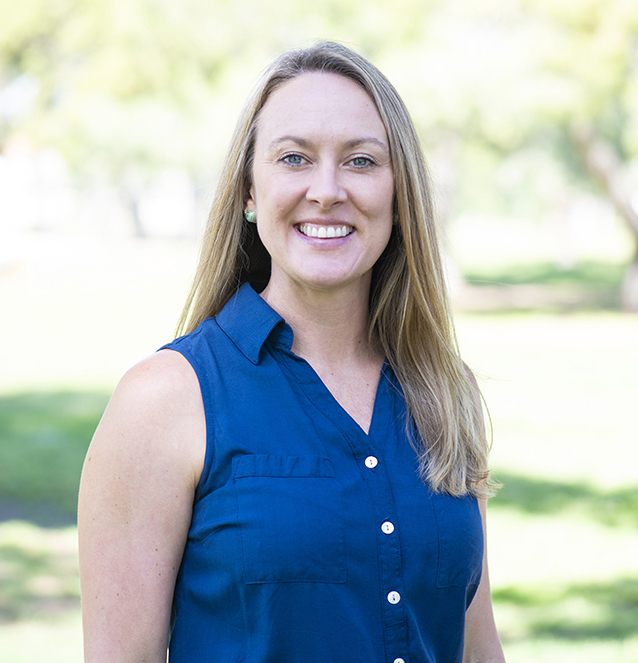Woman of Impact: Dr. Ashley J. Snider
The University of Arizona Office of Research, Innovation & Impact is honoring the inaugural class of Women of Impact, a cohort of female-identifying researchers whose work lays a foundation for a better future – through innovation and discovery, and through inspiring and empowering tomorrow’s changemakers. Among those honored will be Dr. Ashley J. Snider, an associate professor in the School of Nutritional Sciences and Wellness (NSW).
Dr. Snider joined the University of Arizona faculty in 2019, as a joint-appointee in NSW and the BIO5 Institute. In the past three years, her lab has been awarded $3.29 million in grants from the National Institute of Health. Her research focuses on sphingolipids – a class of lipids essential to cell biology – and the role they play in intestinal biology and diseases like inflammatory bowel disease (IBD) and colon cancer. “We’re working on the basic mechanisms that are involved in metabolizing specific dietary fatty acids, like the kinds found in milk and butter,” she explains. “Down the road, we want to be able to describe how these foods affect inflammation, so that we can suggest dietary guidelines for people with diseases like IBD to help ameliorate their condition and maybe make other treatments more effective.”
While the work itself is important, Dr. Snider believes her greatest impact is in her role as a mentor to the next generation of scientists. “The science is very exciting, and I think we’re going to learn some great things,” she says. “But interacting with the students, seeing them grow, helping them get where they want to be – that is my favorite part of my job.”
One of the reasons she takes mentoring so seriously is her own experience being trained by generous and inspiring mentors. “I did my Ph.D. in a lab with an amazing woman and scientist who was a phenomenal mentor,” she recalls. “She let me fail. She didn’t stand over me and watch over my shoulder. When I struggled, she encouraged me to do what I found exciting, follow the path I wanted to follow, and I’d figure it out. And I did.”
Now in her own research lab, Dr. Snider is committed to offering her students that same sort of encouragement and support to follow their own curiosity. “Support to independence is really what I try to provide,” she explains. “Ideally, the student becomes the master of their domain. So they become the expert, sometimes even surpassing the mentor. And it’s a really nice thing when that happens.”
Though she welcomes all self-motivated and engaged students to apply to her lab, she also strives to promote diversity and inclusion on her research team. “Different people bring different ideas, different ways of approaching the same problem,” she says. “I look for people that bring different personal, cultural, educational backgrounds to the table, because they’re going to approach things that we do in the lab in different ways, and that makes the science better for all of us.”
Dr. Snider looks for opportunities to encourage women and minorities in STEM through partnerships with programs like the Women in Science and Engineering (WISE) mentoring program and the Sloan Indigenous Graduate Partnership. But she doesn’t stop there. She has presented in elementary school science classes and to Girl Scout troops, and she’s enthusiastic about getting back into the community as COVID restrictions ease.
She believes it is her responsibility to seize every opportunity to increase interest in science and nutrition, especially in historically marginalized groups. Even more than the scientific discoveries she hopes to make, she wants her lab to be a place where diverse researchers can learn together: “The more perspectives we have, the more enriching the experience is for everyone. That’s what I want to build here.”


